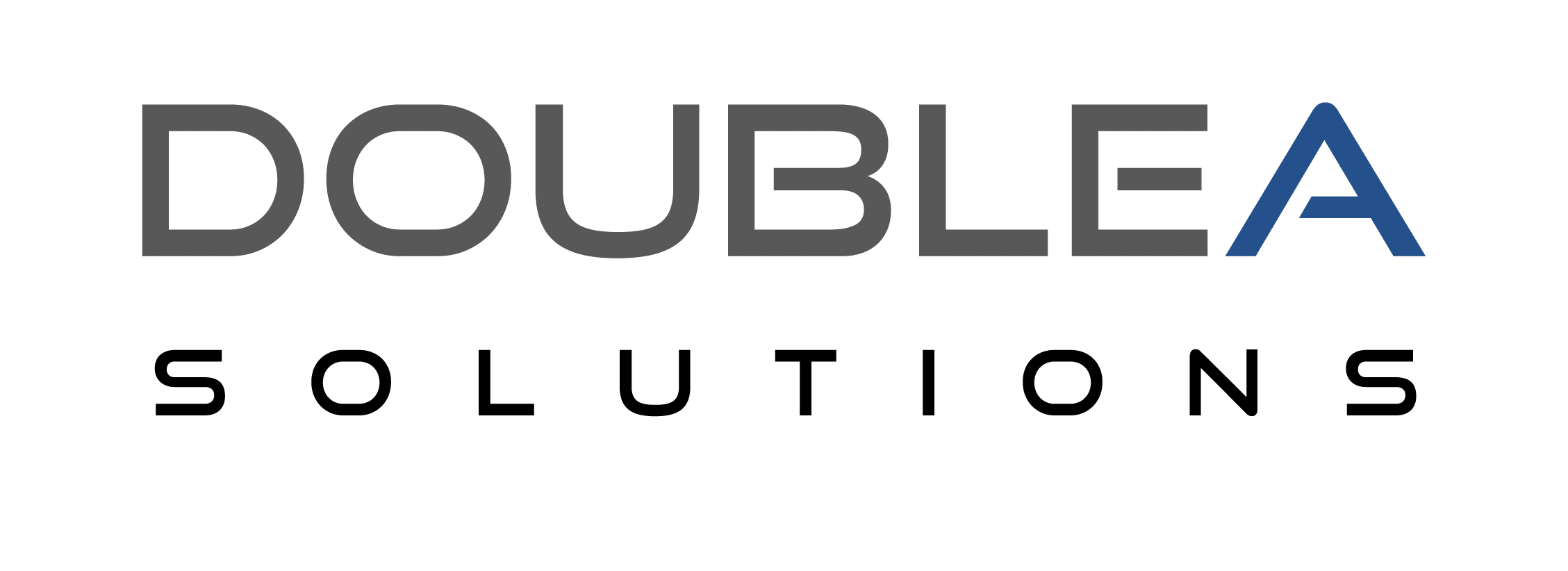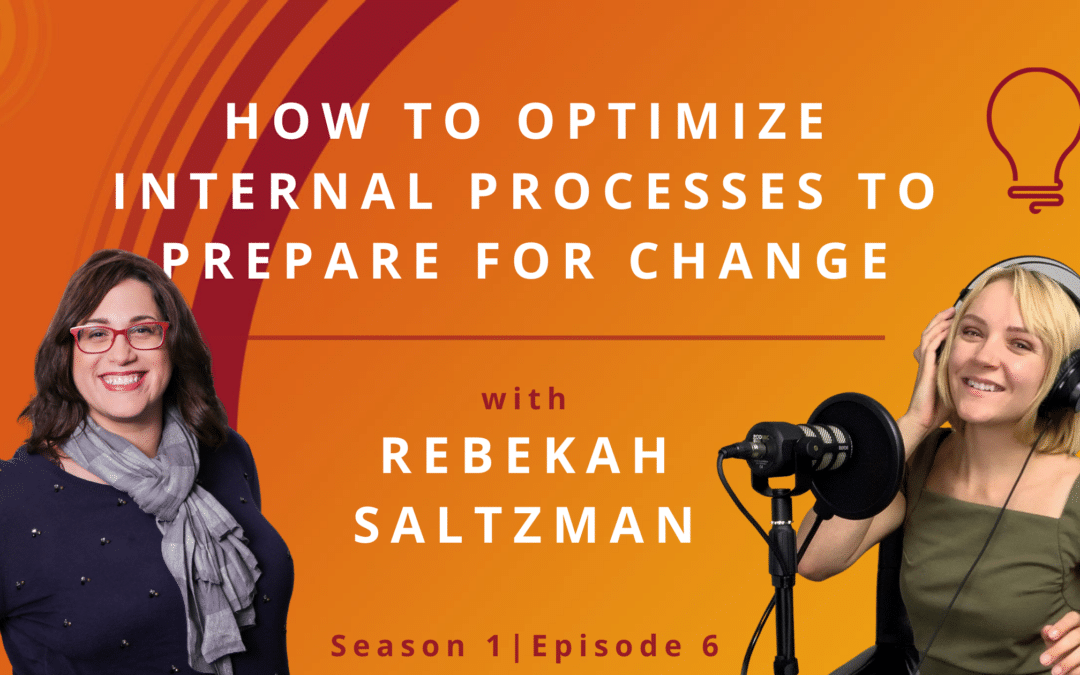Whether it’s how you allocate tasks or simply the software you employ to manage your workload, it is vital to your team and business to optimize internal processes for an efficient and healthy work life balance.
Enjoy Listening To How To Have A Proper Work Life Balance on Everyday Business Solutions?
Click Here To Subscribe On Your Favorite Platform!
About Our Guest:

Rebekah Saltzman
CEO and Co-Founder - Balagan Be Gone
Rebekah Saltzman is a personal organization expert and owner of the company, Balagan Be Gone. She started off only managing personal organization but got into organization and optimization for business startups when she saw an opportunity to share her skill set with a larger market.
With Rebekah, we talk about the importance of delegating tasks inside an organization, outsourcing when necessary, and supporting a business through the right technology.
Episode Transcript:
Halie Morris 0:00
Hello, and welcome to Everyday Business Solutions. Today we’re meeting with Rebekah Saltzman. My name is Halie Morris. As you know, I’m your podcast coordinator and host.
I’m going to start off by just having Rebecca introduce herself, but before that, I’ll say that what we’re going to talk about today has to do with changing your internal processes, changing your process strategy, and your approach to what you’re doing internally at your company. So Rebekah, if you’ll go ahead and talk about yourself a little bit.
Rebekah Saltszman 0:58
Hi everybody, I’m Rebekah. First of all, thanks Halie so much for having me. I’m glad to be here. I am a personal organization expert and the name of my company is called Balagan Be Gone. Balagan is the Hebrew word for chaos. So it’s like Chaos Be Gone, right?
I started out helping people declutter in their homes, and I’ve slowly started shifting into helping small businesses get started and organize their internal processes, and streamline what they do so that they are lean, mean business machines.
Basically, what I love to help people do is set up early-stage startup companies. They don’t have to be tech startups or whatever. They could just be early small business startups. I help people implement all stages of their business and I hold their hand throughout the process.
I’m not just being your cheerleader. “Yay, you’re doing a great job!” I’m actually helping people set up what they do and giving them an order from 10 week coaching practice about how to start out your business so that you are already lean when you are starting out.
You’re not making a lot of mistakes and repeating processes over and over and over again, because that’s just a time suck and it’s a waste of money and resources. It’s just something that I found that most businesses can’t do on their own. So that’s why I started my coaching practice.
Halie 2:29
So when you’re getting people started up, when you’re doing all of this, there’s obviously going to be some areas that you focus on first. What do you look at first, when it comes to just setting up those initial internal processes, and making sure that a business is off on the right foot on the way to operating in a lean model?
Rebekah 2:48
Okay, so the first thing we look at is, what is the goal? If your goal is to support other businesses then we’re trying to make packages that are reasonable for what your clients will want. We look for the best packages to make.
We look for how you can best interact with those customers and clients, and how you can deal with follow-up situations so that you are not spending all of your time and resources figuring out how to follow-up with people. It’s just part of your process. They go into your pipeline, and then you’re managing them throughout the process, because you already have these pre-setup templates on how to manage the process.
For example, we will sit there and we will outline together exactly what stage everything happens, what email gets sent out at stage one. What do you have to do at stage one? What does your client have to do at stage one? What happens at stage two? What happens at stage three, etc?
Most people don’t really understand how to outline that and they’re just sort of winging it, but when you actually set out these processes and streamline what happens and worry about what the images look like when you know this certain email goes out or something like that, it makes a big difference.
If you do it one time and then forget about it, you’re pretty much set. You don’t have to revisit it over and over and over again every single time you create like one proposal. You edit it accordingly for the client at hand, and then you can go ahead and reuse that same proposal over and over again.
At some point, you will need to reevaluate your processes and just make sure that they’re still working for you. But for the most part, I find that for the startup, you can get six months to a year in before you really need to do a solid reevaluation. In the beginning, you might have to tweak it a little bit, but for the most part, you can get through for a while without having to really reevaluate.
Once you start to grow, then you have to change but initially, it’s these templates. Creating rules in your email and just creating email signatures- I mean, we waste so much time typing “Have a great day, – Rebecca” like 50 times a day in all of our emails. It’s such a waste of time and having a signature saves us time.
Having email templates saves us time. Having calendar requests saves us time, and all these things seem small, but they add up throughout the day. Overall, it makes our life easier and it frees us up to focus on tasks that are more important for us to be doing.
Halie 5:37
That’s a great point. Going off that, there’s a lot of businesses that exist that have a process and they don’t want to change it because the team knows it.
What is the downside to an internal process or some of these activities that you could automate or you could just make more efficient and you don’t? What are the downsides to that? What happens to a business that decides not to change because “it works.”

Rebekah 6:03
Okay, I’m going to give an example which I think a lot of people can resonate with. I have three kids. About five years ago, when my kids started in the first grade, the principal said to me, Oh, I had this chance to put smart boards in all of the classrooms, but I just decided that I’m not going to do it because it’s not really worth it. All the teachers are going to have to learn. The good teachers are going to get frustrated, and they’re going to be flustered and they’re not going to understand it. The bad teachers, it’s not going to make them any better, really.”
First of all, I thought he was greatly underestimating the teachers but fast-forward five years. Could you imagine if he would have installed the smartboard five years ago? In 2020, when we’re having a global pandemic, all the teachers could have gone to school, stood in their classroom, and taught all the kids, virtually. Which would have been a much better model for all these children who now have to learn online and the teachers would be isolated in their own classrooms.
So that would have been okay for them. But then the quality of learning would have been so much better for these kids because they would have all been used to the smartboard and the teachers would have been used to the smartboard. It would have been easier for them to adapt to this new online system that we’re in right now. It would have been so much easier for everybody to be adaptive and nimble.
So yes, on the front side, there would have been a learning curve and it might have even taken what seems like an unreasonable amount of time, but later on, having these skills would have made it so much easier.
I mean, who could have predicted a pandemic? but I feel like the world was sort of heading towards online learning models anyways. Obviously we just expedited it a little bit right now but this would have lowered the learning curve for teachers to be dealing with ZOOM a lot earlier.
Halie 8:21
I just told somebody something very similar. I said it’s crazy because I think all of these changes we’re seeing now because of 2020 are going to happen anyway. 2020 only came along and, not just do we have a pandemic but we have all this other stuff that’s going on, and it just sped it up. It said, “it’s gonna take you years to adapt to that. I need you to do that in months.”
More businesses are switching to hybrid models or will be as we overcome this hurdle of a pandemic. We’ll be switching to hybrid models where employees will work remotely or in the workplace. Some are switching to fully remote. Then some are trying to gravitate back but are seeing it’s not so simple. For example, we saw increased productivity with all of our works being remote. So now we have people trickling back in, obviously. I had to come back because I had a studio to set up and get ready and I needed a little quieter than what a six-year-old typically allows.
Rebekah 9:29
Did you hear my dog barking just a minute ago?
Halie 9:30
Oh, yeah, I’m very fortunate. My dog doesn’t bark a lot, but she is a puppy who requires constant attention. She’s four years old and knows what she wants.
Of course, a bunch of people can probably relate. Maybe they don’t have an isolated work environment at home. So either obtaining one of those, working towards it, or coming back to an office might be beneficial, but more people are finding that after they overcome that learning curve, adapting to this new situation, adapting to the new way to handle things, they actually prefer working at home.
So that’s one change that just kind of sped up. The heavier reliance on online networking and online communication has also increased exponentially too. I think ZOOM was a little overwhelmed there for a bit with the influx. I couldn’t get a quality call all the way through for anything, but now it’s smoothed back out a bit.
Going off of that with all of the things, change to adopt a new system or a new internal process to increase your efficiency and really focus on the work that matters to you. There is that learning curve that you mentioned.
So what do you have to say to people who say the learning curve is too great like for the teachers, they’re too afraid, or they’re not the teachers but the administration for the teachers say “the learning curve is too great, we don’t want to do it” versus perhaps the long term benefits, what do you have to say to that?
Rebekah 11:07
So usually the long term benefits outweigh the short term struggles. I think about it from the perspective of, if you give your team the tools that they need to work smarter and not harder, it’s going to be easier for them. In the long run, they’ll like their jobs more and they’ll have a greater satisfaction with the work that they do. They’ll be more loyal to you.
Like when you invest in your team and you show them that you’re invested in them, they want to stay with you. It’s not going to be only about the money because maybe someone will offer them $5,000 more a year or even $10,000 more a year, but if they feel like you are always supporting them, and you’re giving them as much as you can they’re gonna stay with you. They’re gonna want to be with you because they’re gonna appreciate having a good boss and being part of a good team.
So when you invest in your employees, and you take the time to say, “Listen, what you learn is important to me,” there might be a struggle in the beginning, but tell me where I can help you to learn this? Do you need me to get you coaching from the company? Do you need to learn X, Y, and Z in order to do ABC? Tell me where you need to be invested in and I will help you.
I think that the payoff, in the long run, is much, much greater. I think it also says to your team, this is what I value. I value you and I want you to be a superstar. So I’m going to give you the tools to be a superstar and let your “superstarness” come out.
When a boss or a company can do that for their team, I think it makes a huge, huge difference in the quality of work that people show up with and what they’re willing to do for the company. So if they can, if you have an employer or boss, if you can empower your team in that way and make them feel like superstars, I think that the short term headache is worth it. In the long term, the payout is just going to be exponential.
Halie 13:43
Yeah, people typically think of enhancing that work culture just through a reward system or things like that. Enhancing the work culture or rewarding employees comes back to how you equip them. Do you equip them for success?
You can have your employees and you refer to it as the admin side of it that takes up 60+% of their work day, but their sales rep or their customer service rep, they’re not getting to focus on what you hired them for. That leads to job dissatisfaction.
Rebekah 14:21
If you are going to give your team a tool that can focus them on what their actual job is, instead of the admin side of it, you’re going to be better off because they’ll be happier but also you don’t have to hire somebody else to do it.
So, let’s say you’re investing in a tool that’s going to make it faster for them to lead people through the sales funnel. If you’re gonna do that there’s gonna be a learning curve, but what you’re doing is you’re freeing up their time in the long run so that they can focus on what their actual job is.
That’s huge! When you’re looking at your bottom line, it’s not so cheap to hire another person. If you can make the person you have to do a better job more efficiently, they’re going to feel better about themselves. They’re going to feel better about how they do their job, you’re going to be happier with their performance, and you’re going to get an employee who is much better at their job.
Halie 15:23
It’s a senseless mindset sometimes. If you have a team that’s struggling to bring in sales or respond to customer calls, or whatever their job might be, it might not be the team. It might be visiting the drowning with all this stuff that they have to do. That leads us into something else we talked about earlier, which was outsourcing some of these tasks and how exactly you’re outsourcing the kind of menial labor that’s unnecessary for your sales team, your support team, your marketing team, whatever team it might be.
Rebekah 16:02
Something that you said to me was that outsourcing sometimes has this negative connotation where I’m taking away American jobs and I’m sending them overseas. But outsourcing doesn’t have to be International. I think that there is an important formula you need to consider when you decide who should be doing what job, or what role in your company.
So let’s take the example of the home for just a minute because I think it’s a really easy example to look at. If you make $300 an hour, and it’s gonna take you three or four hours to clean your house, it’s not worth it to do it yourself because somebody else can do it the same or better than you can for less money. If you can focus that time on either your work or something else that’s actually important to you, then it’s worth it to outsource that job.
So I think that what you need to consider is that if someone can do the job equal or better than you can, and if it’s not something you enjoy anyways, then it’s worth it to hire somebody to do that.
For example, in my business, I don’t really enjoy doing the writing of my social media so much, but I don’t mind doing the graphics. My background is in design and I do a lot of my own graphics. I let my assistant do a lot of the writing for me because, for me, it’s worth it to have her do it for what it costs so that I can focus on actually meeting with clients or doing podcast interviews or my own podcast, things that I can’t outsource to somebody else.
It makes sense to do it because either I enjoy it, or it’s something that nobody else can do. I think that’s really an important aspect. If nobody else can do it, if it’s something you have to do, then you have to do it, but if it’s something somebody else can do, it’s really important to let it go to somebody else.
This doesn’t have to be necessarily a person. It can also be an automated system, like the systems that you guys offer. I think that where you can make yourself leaner and use systems or outsource to people, it does actually make life easier.
I don’t necessarily have to outsource to another company either. So if inside your company, you have a need for someone to handle social media, you don’t necessarily have to outsource that to an outside company. Maybe that means outsourcing to a social media specialist within your company.
So the definition of outsourcing in my mind is a little bit fluid because it doesn’t need to be rigid. It doesn’t need to be that I’m sending the jobs overseas. It’s that I don’t have to do this job myself. I can pay somebody and actually, that’s great for the economy, too.

Halie 19:22
It’s not like, Oh, my gosh! These jobs or these tasks that you’re outsourcing are terrible! It just means you brought somebody on for a particular job, and you’re paying them a certain amount of money for that job. At the end of the day, if they’re doing something else, it’s not taken into your equation more often than not.
So it’s like you said when you outsource when you share these tasks with somebody else you share that business with somebody else. You give them the opportunity to make money from it, but you also increase your efficiency and your specialization.
Rebekah 20:09
Exactly, because there’s no reason to waste your time doing something you’re not good at. So if you want to DIY your website, go ahead and DIY your website. But here’s the thing, if you make $300 an hour and you DIY it, it’s probably gonna take you 10 hours to do so.
If you would have just hired a pro, they would have done it in three or four hours. It might have cost the same amount, but it would have saved you so much aggravation that why would you want to aggravate yourself for 10 hours.
Then by the way, once you get aggravated for 10 hours, it runs into every other aspect of your business and you’re aggravated for like three days. Everybody else kind of suffers because you just didn’t want to outsource that job and spend the little money on it.
Now sometimes we don’t have the money to spend and we have to DIY certain things. But this is where I’m talking about prioritization of what you can outsource and what you can’t outsource.
You have to figure out what is going to be good enough if you do it and what isn’t, and where you’re going to get aggravated, because, honestly the aggravation can set you back so much that it’s really not worth it.
Halie 21:25
So you’re not only feeding yourself negative energy and unnecessary headache, but you’re taking away from what you could be doing instead. That could be where you say, I’ve got this stack of people and I need this much work done to reach this goal.
Then realizing that when you overwork people you do drop their efficiency and actually do a lot less in a greater amount of time. You could actually have them come in 8 hours versus 9 or 10 hours each day you can cut back on somebody hours, give them more family time.
Give yourself more family time or, just when you’re at work, because you’re actually getting your job done it doesn’t feel as stressful or crunched. You relax the atmosphere in the office.
That thing that everybody’s striving for right now is that work culture. That’s the big trend, or at least it was before COVID-19 hit and changed the idea of the workplace completely. Work culture has been on the uptick within HR and within work as well. It’s one of the top priorities of applicants when seeking a new job.
When building a business, part of that is making sure that you have the internal processes in place to support your team so that they’re relaxed enough to actually benefit that work culture and drive up the productivity level.
Rebekah 22:39
Right and productivity is a huge, huge thing. There’s this thing I read in the Harvard Business Review that people are only productive for four hours. It’s this idea that an eight-hour workday is not really like an efficient workday really and most people are only actually getting four hours of work done every day, something much smaller than what we’re actually at work for.
That’s because we get distracted and we can’t bounce back easily from distraction. So if you can make the process leaner for your employees, or for yourself, if it can just be a simplified internal process where there’s no way to fall off and be distracted, it’s gonna boost your productivity also.
It means that fewer things will be stopped in the process. I think that’s where a lot of people like to fall down the rabbit hole. For example, I’m writing an email to you, and the phone rings and it takes me a couple of minutes to remember that I have to get back to your email because maybe before I get back into it 6 other emails came up in the meantime. So I am just slogging through those to get back.
If the process of interacting with other people takes less time, it’s one of those things where the phone rings, okay, just give me one second. Blah, blah, blah. I can finish what I’m doing and then address the person on the phone.
That makes a big difference because they’re not interrupting their workflow. That improves productivity and it just makes everybody feel more productive and better about the job they’re doing. It makes things less likely to fall through the cracks.
Halie 24:39
As you know, we have the CRM, we have an auto dialer, which does a lot of the things you just touched on. So the auto dialer takes out the dialing and stuff of that task, but it’s this idea of putting the human aspect back. What you’re doing is you’re taking out all those things that dampen your actual customer interaction.
It decreases the time you spend as a team, the time you spend with your customer. So now, if they’re not having to waste all that time, and they’re not looking for excuses to be distracted, like with our dialer, it just goes right into the next call unless you pause it.
It’s not bad because you’re not dealing with the ringing, the dialing, and things like that. You’re actually talking to people when they pick up and if they don’t pick up, you can quickly move on. You don’t have to dwell on it.
But it’s also the same if you adopt a CRM system. It’s easy. You have those templates, you have the automation, that is always doing something for you, and what we call the increased sales memory, or just the increased customer memory where the system helps you by putting some of that in there so you can scroll back. It’s not like you actively forgot. You’ve got a million things you’re doing because you’re a working human being. So I would definitely agree.
Rebekah 25:56
It just speaks to the fact that we discussed, which was that you don’t have to grow your business by constantly looking for new customers. If you can better focus on the customers you have, you can upsell those customers more, if you’re having a better customer relationship, and if you are able to spend more individual time with your customer you’ll do better.
So having fewer customers or having a small number of customers isn’t necessarily a bad thing. As long as you can meet their needs, and constantly be selling to them, then that’s what’s the difference if you have 1000 customers or 100 customers. In some ways, you could sell a lot, almost the same amount to both numbers of customers.
If you are focusing on your customers and what you can get them to buy from you and focusing on the relationship, I think that is the most important thing. Everybody wants to feel like the person they are working with makes them the only one. No one wants to feel like someone else is more important than them.
I love it when I’m dealing with a service provider and I feel like I’m the only one. I know that other people feel that way. I think that one of the most important things you can do for your business is to make each and every one of your customers feel like they are the only customer. That is going to be what keeps your customers coming back and spending more money.
Halie 27:41
Sometimes it’s the returning customer. Sometimes it’s a subscription-based thing. So now we have a lot of subscription-based boxes or subscription-based services like the software-as-a-service products that are very popular.
If you’re constantly trying to acquire new customers and that is your only means of revenue, then you have sales reps that are only getting so many successful sales out of how many people they’re calling. It’s different for each team, of course, right?
But then if you have a returning customer, that’s a steady set of revenue that you can rely on. It’s a relationship and usually, they do your marketing for you if they really like you.
Rebekah 28:21
Yeah, that’s so true.
Halie 28:28
When I started podcasting, for example, I did all my research and I did all my prep. It was like, how do you market a podcast? Then it was well, how do people find podcasts? They hear about them from friends or family or sometimes they pop up on a list because a bunch of other people listens to them.
We rely on that opinion of others who’ve already done the listening for us to find that initial choice to listen. Then we decide if we like it, but that’s the marketing trick nowadays, not just with podcasts, though, with everything with software, with other services, with different products.
Oh, how did you hear about us? Well, I actually heard about you from my friend, Julie, or whatever. You know, Julie told me about it and she heard from Kate and Kate heard from so-and-so and now I’m here. Oh! You guys are pretty cool! You guys are nice to me and I need you. Yeah, I’m going to tell Brandon and Carter over there, whoever.
You’re going to tell your friends and you’re going to keep coming back and then suddenly, your sales team can focus on going out to get leads and just being able to be there when somebody comes into them. They’re able to interact with that person, engage that person, and they’re excited because this person was interested in us.
There’s so much of a compounding effect. Everything just builds.

Rebekah 29:52 The word of mouth is searchable now because people can ask a question today in a Facebook group. Who’s great at XYZ? Who’s the best personal organizer? Someone might say to me. In six months someone else is searching that group for the same question and I come up again, without anybody having to do anything.
It keeps coming up and so that’s the thing. These things are sort of living on the internet, and you want them to be good about you. You don’t want people to find the bad stuff, because you don’t want there to be any bad stuff.
Halie 30:28
You don’t. There’s going to be tough because you can’t make everybody happy. Everybody gets that. Everybody’s pretty understanding most of everybody, but people are generally very understanding these days. So especially working from home, they understand if your dog barks or your kid pops in with her Barbie or something like that.
They get it but at the same time if they’re going through your reviews, or they look up a question about where to get a CRM and you’re not anywhere on the page or what is found about you is “I worked with them but their customer service was bad. I was waiting for 30 minutes and I got somebody from a different country who doesn’t actually work for the company and didn’t know what was going on and then I was transferred to so and so.”
Which is a deja vu because haven’t we all had that happen? You don’t want stuff like that coming up in the search bar. It’s not just if you’re searching the Facebook group. If it’s in that Facebook group, and that Facebook group is public, then suddenly it’s in the Google search engine or whatever search engine you might use. It’s gonna pop up everywhere.
Then because people are reposting on other places like “hey, I look at this, look what they said,” it pops up on Instagram and back up on Facebook as a different post. Now it’s on Twitter. Now it’s on Tumblr, whatever people are. It’s different.
Rebekah 31:52
I think when you can focus 1) on delivering good service to your customers and making them your priority and delivering customer service, that’s the best thing that you can do in your business. Automation, streamlining, and outsourcing your business is going to help you focus on your customers. That’s the long and the short of it.
Halie 32:21
Focus on your team. Focus on your customers. Do whatever it takes to get to that point. Anything morally okay to get to that point.
I think we’ve touched on a lot of things. We’ve touched on how you help small businesses start-up, how they focus, we’ve touched on automation throughout the entire thing, why automation is important, and how technology or the lack of adoption of it can impact schools and businesses, to now this idea of outsourcing tasks and processes locally and keeping your efficiency, increasing your team culture, and just really driving your business’s success.
Rebekah 33:03
Yeah. Businesses who keep their employees happy are a lot more successful than businesses that don’t.
Halie 33:12
I definitely agree. Would you like to add anything as we wrap up right now?
Rebekah 33:17
Thank you so much for having me.
Halie 33:38
For now, this is Everyday Business Solutions, and thank you for tuning in!

